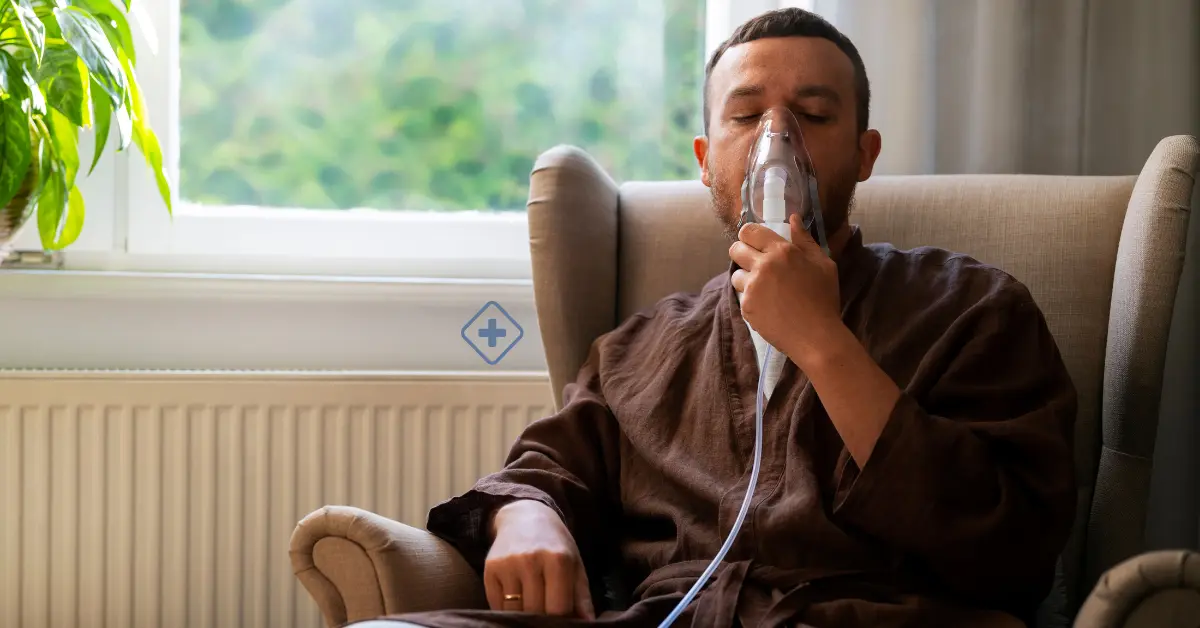
Cardiology
10 Best Ways to Keep Your Heart Healthy and Strong!
Your heart does a lot for you every day, show a little appreciation by adopting these changes in your daily habits

While it is true that most people know that a good diet accompanied by a proper exercise routine can keep our hearts healthy, few of us put it into practice. A physically active lifestyle is associated with a reduction in the frequency and mortality of cardiovascular disease.
Here are 10 key points to consider in your day-to-day habits to help your heart work as efficiently as possible.
Even if you improve just one or two of these areas, you can make yourself less likely to get heart disease. However, keep in mind that the more tips on this list that you follow, the better your lifestyle and heart health will be.
1. Exercise regularly
Staying physically active is related to a reduction in the frequency and mortality of cardiovascular diseases by improving the cardiorespiratory system's functioning and having a beneficial effect on overweight, high blood pressure, diabetes, and hypercholesterolemia reduces the chances of angina appearance chest and myocardial infarction. It even has remarkable psychological effects, which help manage stress and increase mental well-being.
2. Maintain a healthy and balanced diet
Following healthy eating habits can help reduce three of the main factors involved in heart disease: high cholesterol, high blood pressure, and excess weight. Therefore, it is possible to reduce cardiovascular risk with just a few dietary changes. Good habits for your heart include moderating your daily intake of salt and alcohol. The diet should also be based primarily on fruits, vegetables, grains, fish, and lean meats. It is recommended to reduce the consumption of fats (incredibly saturated fats) and cholesterol (fatty red meats, whole milk, cheeses made with whole milk, eggs, dishes made with cream and high-fat desserts), and consume the fat that comes from oil olive, nuts, and oily fish, for the benefits it provides on the cardiovascular system. The fiber contribution (whole grains, legumes, fruits) is also significant.
3. Stop smoking
Tobacco use is one of the main causes of heart problems. Smoking hurts the cardiovascular system, increases the risk of thrombosis, and causes a decrease in the coronary arteries' caliber, which hinders the flow of the heart. Therefore, it is necessary to permanently avoid tobacco consumption and passive smoking (smoking environments).
4. Limit alcohol
Consuming alcohol in moderation (one to two glasses of red wine a day) has been linked to decreased cardiovascular disease. However, it is proven that alcohol abuse is harmful to health. Several studies have described a relationship between excessive alcohol consumption and the appearance of cardiovascular diseases; therefore, it is advisable to moderate its consumption and limit it to a glass of red wine to accompany meals.
5. Maintain a healthy weight
Various studies have shown that obesity aggravates heart problems due to over-exertion on the heart, predisposes to hypertension, coronary heart disease, and cerebrovascular accidents.
Favors the appearance of type 2 diabetes and other diseases such as lung diseases and the osteoarticular that are also affected by the overload they are subjected to.
Approximately 40% of coronary heart disease incidence is attributed to a body mass index (BMI) greater than 25. That is why it is essential that each person knows what their BMI is and act accordingly, especially if they are older than 20 years.
6. Do pleasant activities and eliminate stress
Living a stressful life can affect your heart. You are more likely to have a heart attack during times of stress, as your heart races and blood pressure is higher. When this happens, the heart needs more oxygen. This does not mean that stress causes cardiovascular disease, but it can make it worse.
It is essential to carry out relaxing and pleasant activities, such as going for a walk, practicing yoga, etc., and achieving a balanced work life with spaces that allow us to enjoy free time and disconnect from daily work.
7. Go for regular medical check-ups
After 40 years, it is recommended to attend medical check-ups regularly. People with risk factors such as a family history of heart disease, cholesterol, diabetes, hypertension, obesity, and smoking should pay more attention to this point and go to the doctor.
A medical review and diagnosis can detect diseases related to cardiovascular risk (diabetes, hypertension) when they have not yet been shown.
8. Get enough sleep
Getting enough rest and sleep will help you have a healthy heart. If you don't have good rest habits, no matter how old you are or your medical and family history, you are more likely to suffer from cardiovascular disease. Make your bedtime a priority. Get 7-8 hours of sleep each night.
9. Don't spend long periods sitting
Sitting for a long time has very adverse effects on health. Seek to move more during the day. Take the stairs instead of using the elevator, take short walks inside your office or your house while you are on a call, choose to walk to places you have very short distances instead of using your car.
10. Celebrate small achievements
We know that making changes to your lifestyle is not easy at all, so try to go little by little, celebrating your advanced progress. It is also essential to spend quality time with those close to you; it is good for your emotional health and heart.
It is essential to consult a Cardiology specialist to diagnose a Tachycardia and to be able to start a treatment that helps you control your symptoms.
At the time of consulting your Cardiologist, try to keep a record of your pain with a detailed description of the symptoms, duration, and what you think triggered them. Also, mention any medications you are taking.
In case of breathing difficulties, chest pain for several minutes or fainting, you should go to the emergency room. You can go directly to the BlueNetHospitals Emergency Room in Los Cabos or call an ambulance at 624 1043 911.
Here are 10 key points to consider in your day-to-day habits to help your heart work as efficiently as possible.
Even if you improve just one or two of these areas, you can make yourself less likely to get heart disease. However, keep in mind that the more tips on this list that you follow, the better your lifestyle and heart health will be.
1. Exercise regularly
Staying physically active is related to a reduction in the frequency and mortality of cardiovascular diseases by improving the cardiorespiratory system's functioning and having a beneficial effect on overweight, high blood pressure, diabetes, and hypercholesterolemia reduces the chances of angina appearance chest and myocardial infarction. It even has remarkable psychological effects, which help manage stress and increase mental well-being.
2. Maintain a healthy and balanced diet
Following healthy eating habits can help reduce three of the main factors involved in heart disease: high cholesterol, high blood pressure, and excess weight. Therefore, it is possible to reduce cardiovascular risk with just a few dietary changes. Good habits for your heart include moderating your daily intake of salt and alcohol. The diet should also be based primarily on fruits, vegetables, grains, fish, and lean meats. It is recommended to reduce the consumption of fats (incredibly saturated fats) and cholesterol (fatty red meats, whole milk, cheeses made with whole milk, eggs, dishes made with cream and high-fat desserts), and consume the fat that comes from oil olive, nuts, and oily fish, for the benefits it provides on the cardiovascular system. The fiber contribution (whole grains, legumes, fruits) is also significant.
3. Stop smoking
Tobacco use is one of the main causes of heart problems. Smoking hurts the cardiovascular system, increases the risk of thrombosis, and causes a decrease in the coronary arteries' caliber, which hinders the flow of the heart. Therefore, it is necessary to permanently avoid tobacco consumption and passive smoking (smoking environments).
4. Limit alcohol
Consuming alcohol in moderation (one to two glasses of red wine a day) has been linked to decreased cardiovascular disease. However, it is proven that alcohol abuse is harmful to health. Several studies have described a relationship between excessive alcohol consumption and the appearance of cardiovascular diseases; therefore, it is advisable to moderate its consumption and limit it to a glass of red wine to accompany meals.
5. Maintain a healthy weight
Various studies have shown that obesity aggravates heart problems due to over-exertion on the heart, predisposes to hypertension, coronary heart disease, and cerebrovascular accidents.
Favors the appearance of type 2 diabetes and other diseases such as lung diseases and the osteoarticular that are also affected by the overload they are subjected to.
Approximately 40% of coronary heart disease incidence is attributed to a body mass index (BMI) greater than 25. That is why it is essential that each person knows what their BMI is and act accordingly, especially if they are older than 20 years.
6. Do pleasant activities and eliminate stress
Living a stressful life can affect your heart. You are more likely to have a heart attack during times of stress, as your heart races and blood pressure is higher. When this happens, the heart needs more oxygen. This does not mean that stress causes cardiovascular disease, but it can make it worse.
It is essential to carry out relaxing and pleasant activities, such as going for a walk, practicing yoga, etc., and achieving a balanced work life with spaces that allow us to enjoy free time and disconnect from daily work.
7. Go for regular medical check-ups
After 40 years, it is recommended to attend medical check-ups regularly. People with risk factors such as a family history of heart disease, cholesterol, diabetes, hypertension, obesity, and smoking should pay more attention to this point and go to the doctor.
A medical review and diagnosis can detect diseases related to cardiovascular risk (diabetes, hypertension) when they have not yet been shown.
8. Get enough sleep
Getting enough rest and sleep will help you have a healthy heart. If you don't have good rest habits, no matter how old you are or your medical and family history, you are more likely to suffer from cardiovascular disease. Make your bedtime a priority. Get 7-8 hours of sleep each night.
9. Don't spend long periods sitting
Sitting for a long time has very adverse effects on health. Seek to move more during the day. Take the stairs instead of using the elevator, take short walks inside your office or your house while you are on a call, choose to walk to places you have very short distances instead of using your car.
10. Celebrate small achievements
We know that making changes to your lifestyle is not easy at all, so try to go little by little, celebrating your advanced progress. It is also essential to spend quality time with those close to you; it is good for your emotional health and heart.
It is essential to consult a Cardiology specialist to diagnose a Tachycardia and to be able to start a treatment that helps you control your symptoms.
At the time of consulting your Cardiologist, try to keep a record of your pain with a detailed description of the symptoms, duration, and what you think triggered them. Also, mention any medications you are taking.
In case of breathing difficulties, chest pain for several minutes or fainting, you should go to the emergency room. You can go directly to the BlueNetHospitals Emergency Room in Los Cabos or call an ambulance at 624 1043 911.
BlueNetHospitals - Hospital Los Cabos
BlueNet Hospitals.
Trending Topics
Cardiology
Trending Topics
Septoplasty
Septoplasty is a highly effective procedure for correcting a deviated septum
Ulcerative Colitis
Ulcerative colitis is an inflammatory bowel disease (IBD) that causes chronic inflammation.
Prostate-Specific Antigen (PSA)
The level of PSA in the blood can provide valuable information about prostate health.
Emphysema
Emphysema symptoms can be subtle at first but tend to worsen over time.
Health Library
Cardiology
Aprender Más Acerca De:
- ¿Necesitas una cita con un Especialista?
- llámanos
- escríbenos
- Conéctate










